SiX has two mono channels with SSL SuperAnalogue™ Mic’ Pre’s; these are transparent, fast and have a much wider available gain range than you would typically get on a compact desktop mixer – 66dB of gain compared to the more typical mid-40s or 50dB found in desktop mixers. They have phantom power, 75Hz high pass filter and an independent line-level input which can be switched to instrument level input with high impedance.
Moving down the channel strip we have a brand-new one knob compressor circuit. This design is based on and has the same sound as the classic SSL feed-forward Channel Compressor circuit. It has a program-dependent attack time, a fixed release time and fixed ratio. Simply adjust the threshold, watch the traffic lights flash to see how much compression is happening and rely on the circuit to automatically adjust gain to match input levels. This is a cool-sounding circuit that makes it simple to dial in a consistent level and get signals sitting right in the sweet spot.
Both mono channels have a new two-band SSL EQ that may be independently switched between shelf and bell curves, with different centre frequencies for each type. This approach draws upon the SSL design legacy of specifying response curves and centre frequencies for channel EQ that are immediately intuitively pleasing in their response; these curves and frequencies were selected by our team as the most “musically useful” for a wide range of sources.
SiX has 100mm faders. We spent some time working on alternate fader tapers and settled on a law that gave us the most control over the most useable gain range, making on-stage level control far easier than it would be with a rotary or a 60mm fader as found on other compact mixers.
Each channel has a fully balanced insert point for integrating other signal processors which is after the EQ and Compressor circuits, and like all SSLs the insert send is always active – meaning you can use this as a “dry” record send to your DAW if required.
At the bottom of the mono channels we have an ALTernate input switch which can source 2 extra mono channels from a connector on the rear of the console which can be used at mixdown.

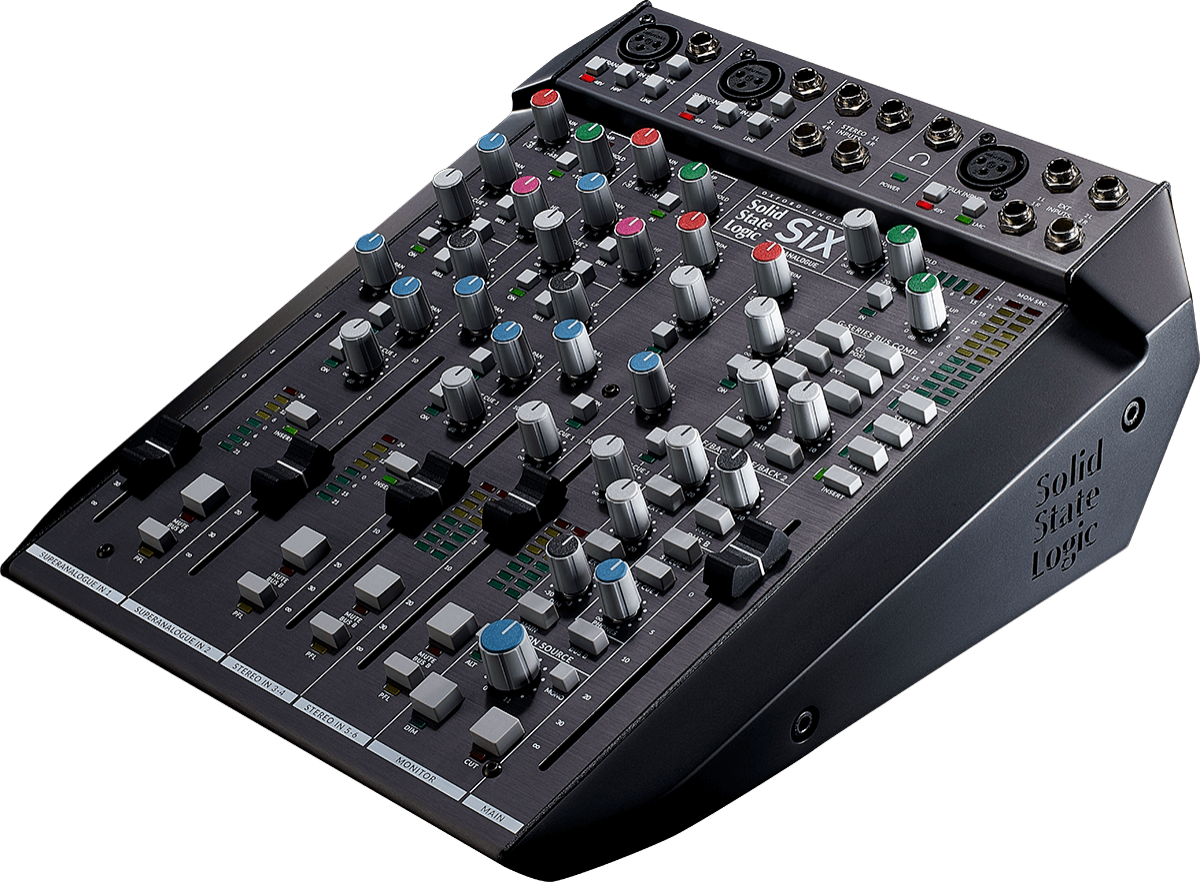
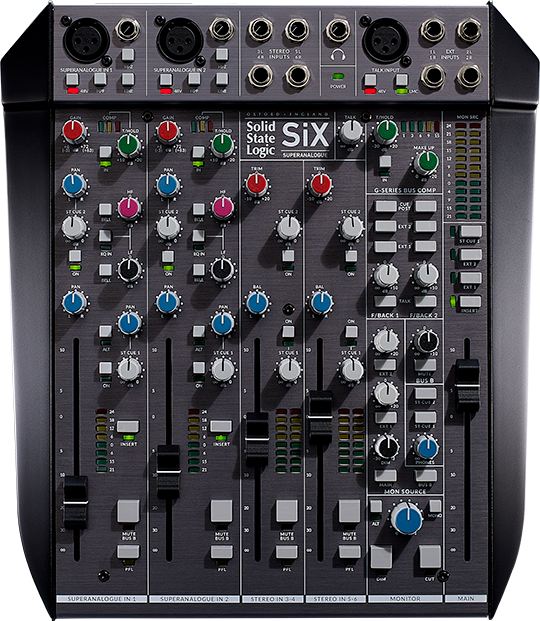
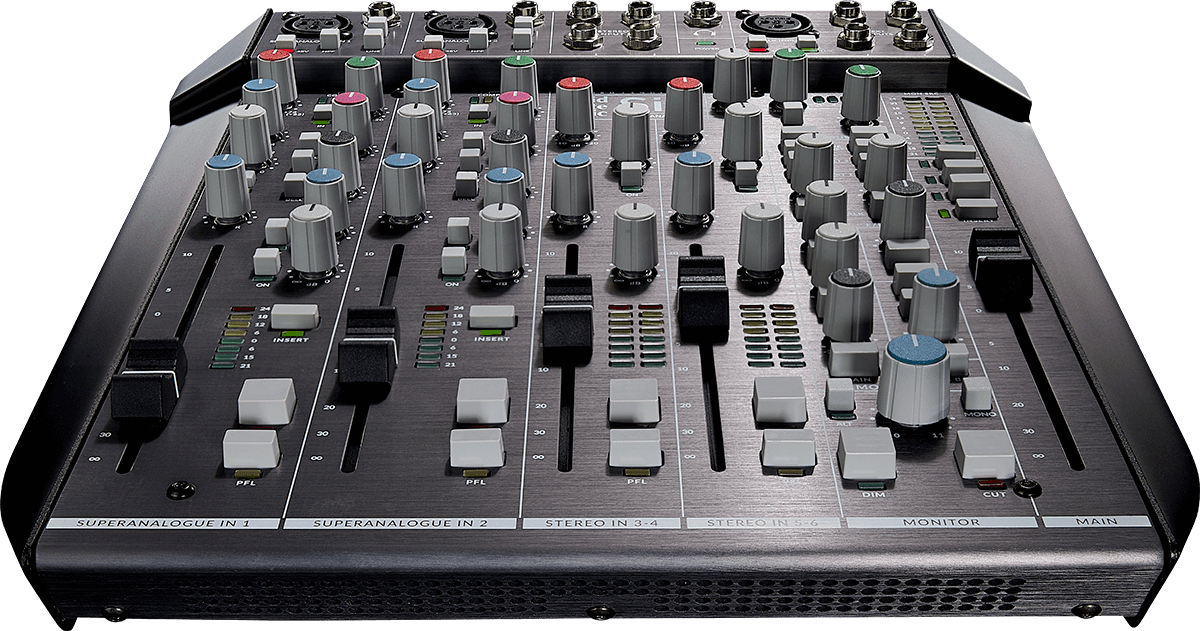
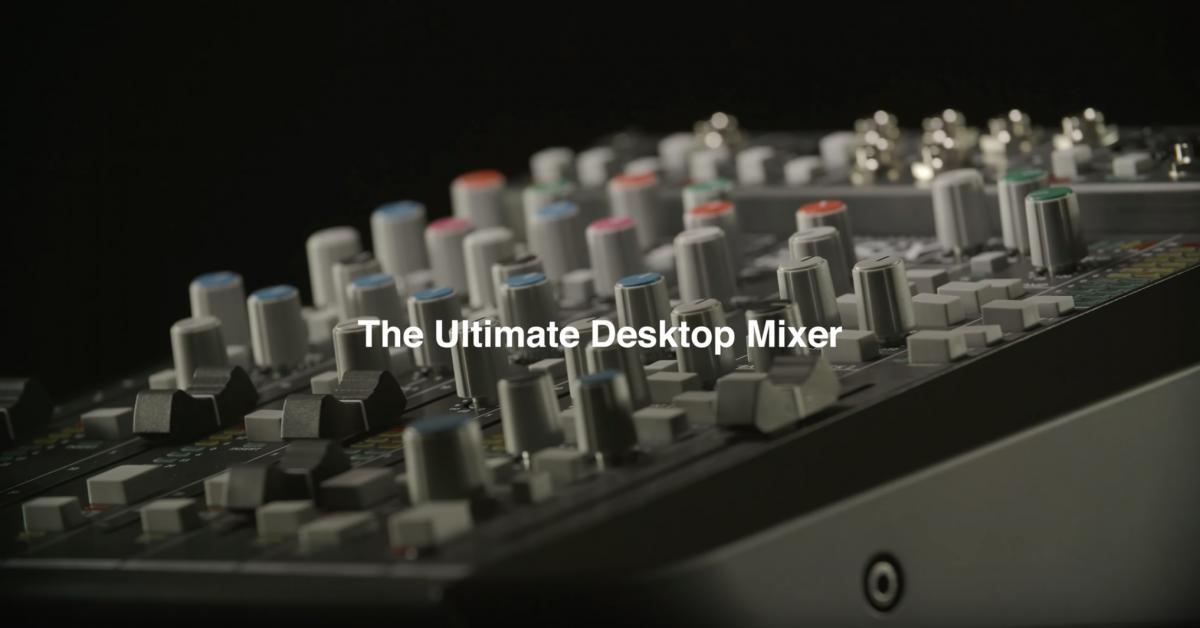
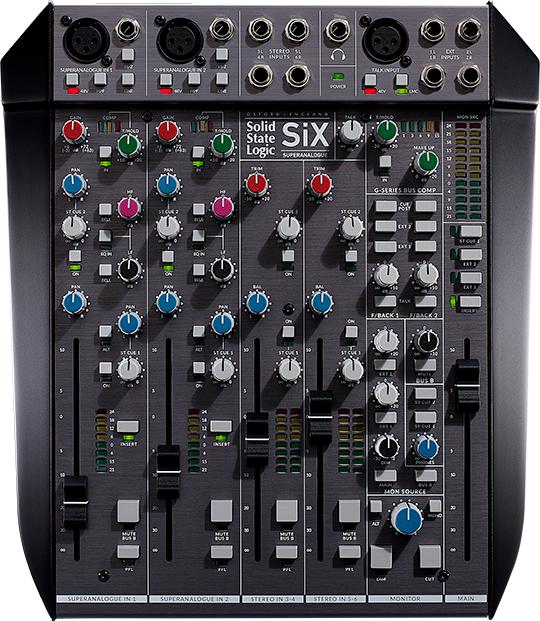
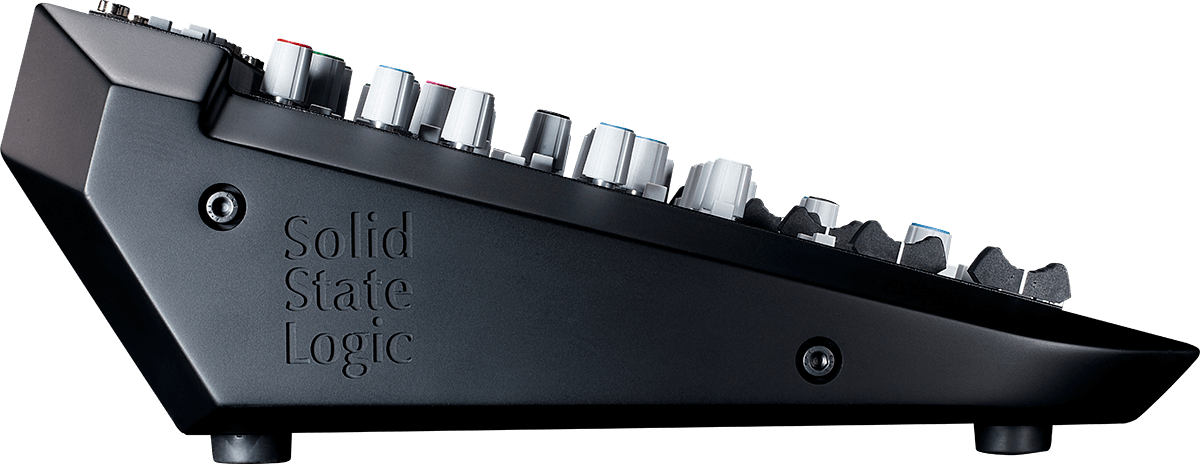
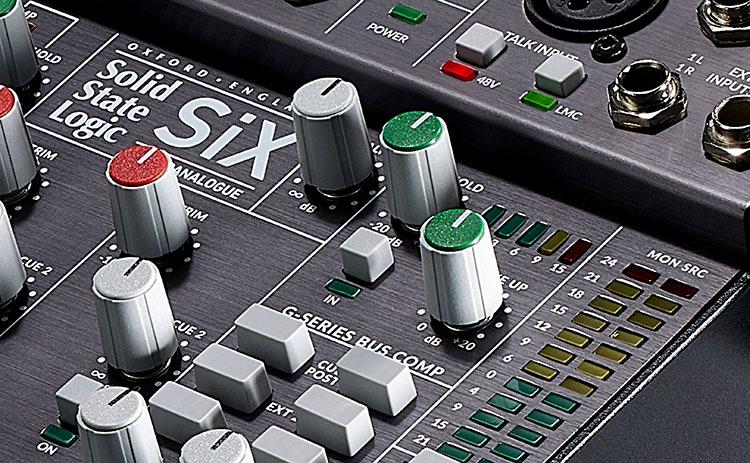
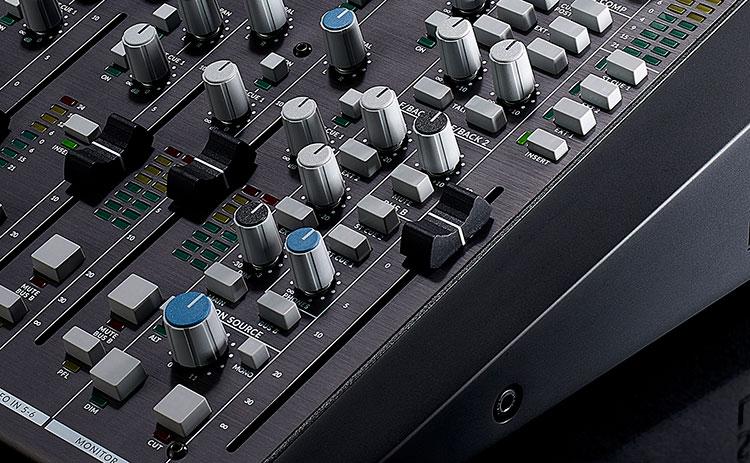
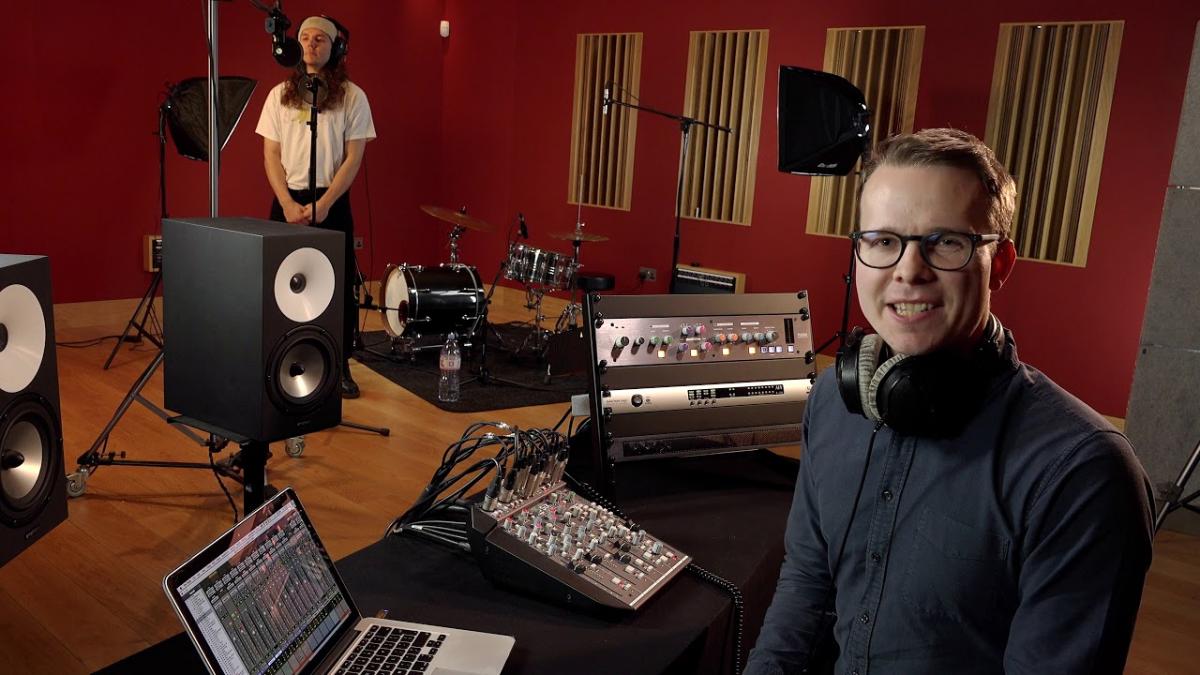
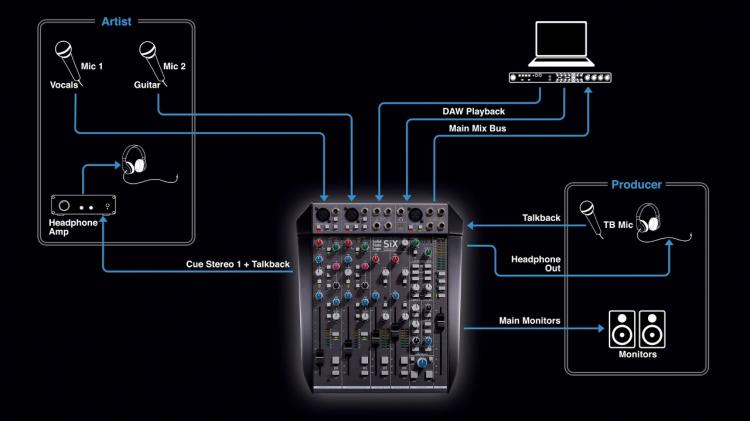

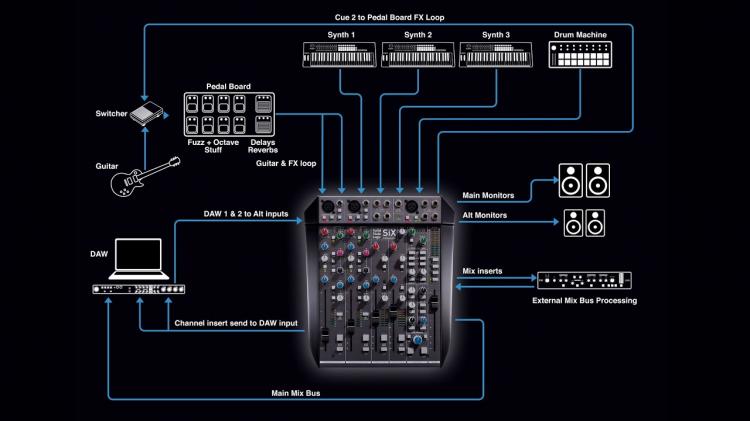
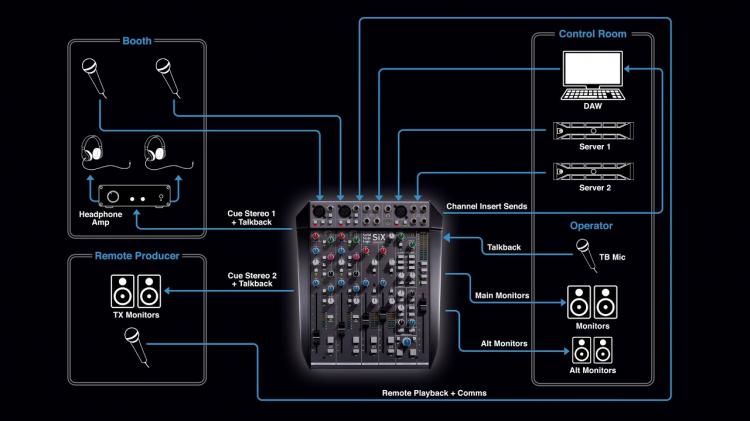
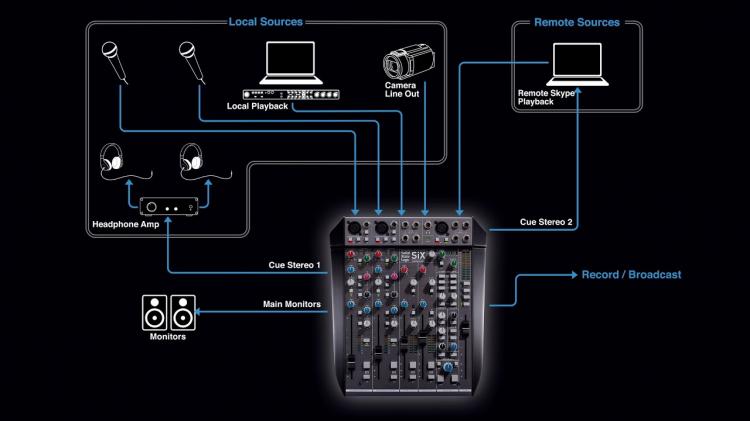
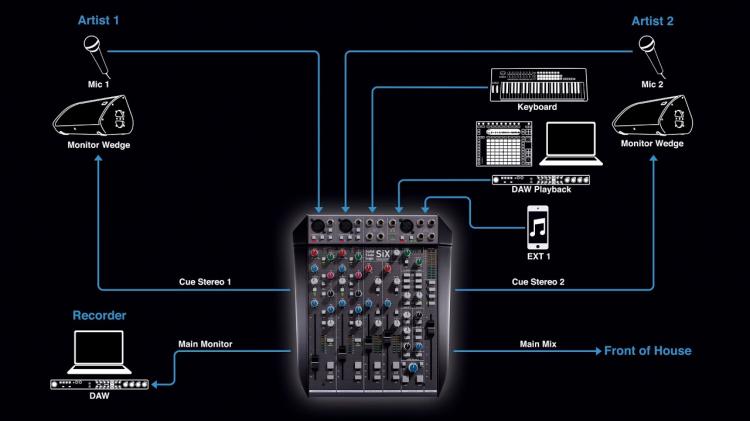
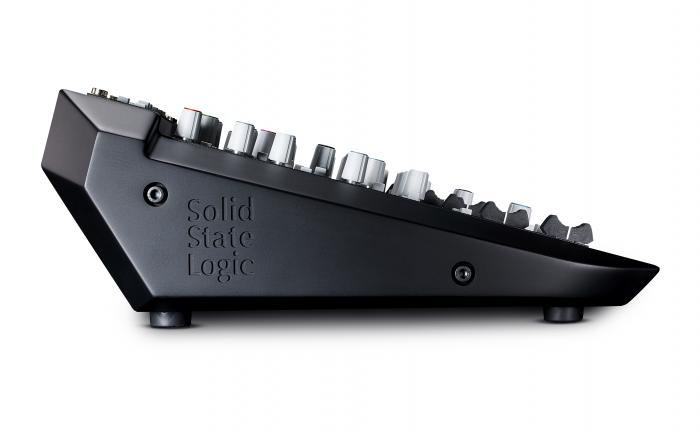
 View Image
View Image
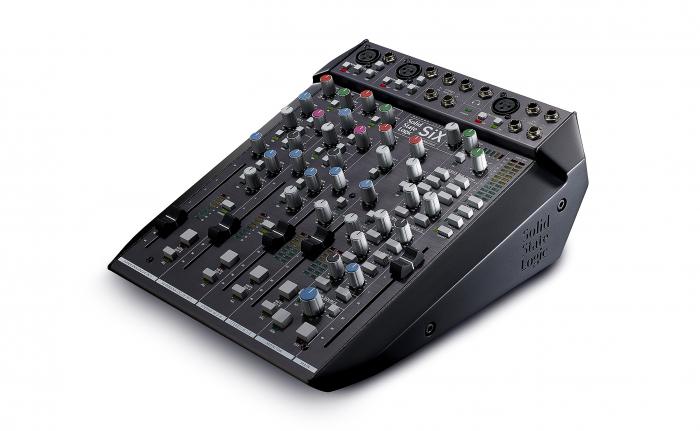
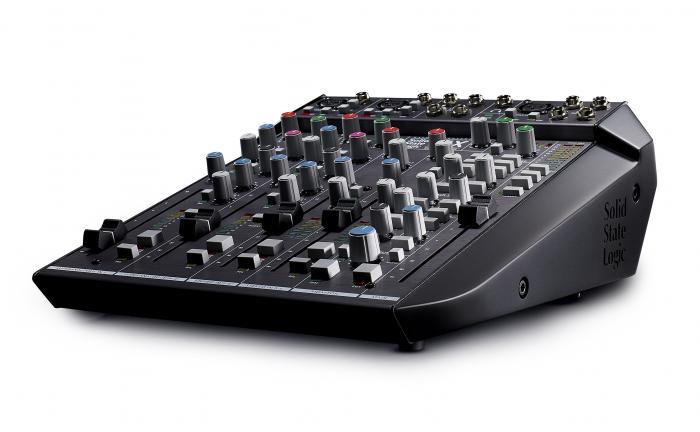
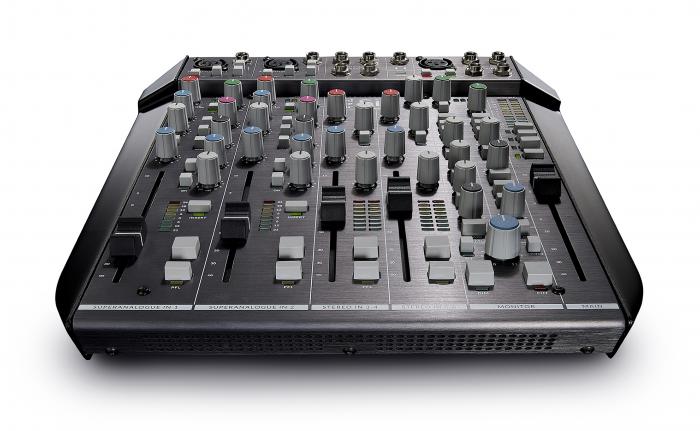
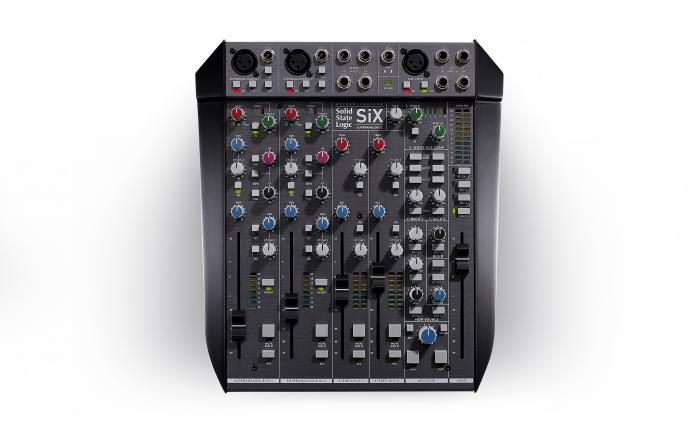
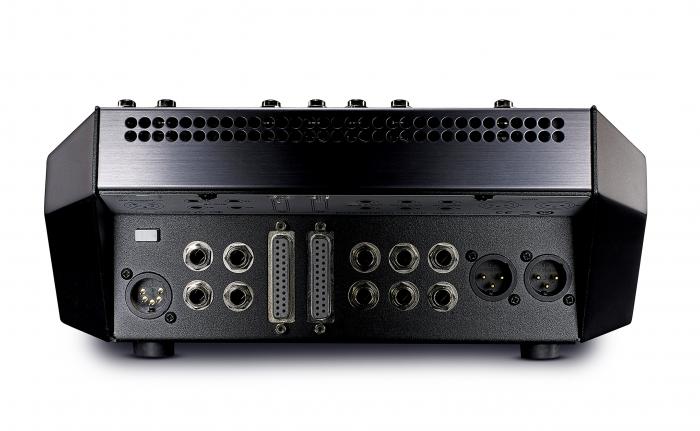
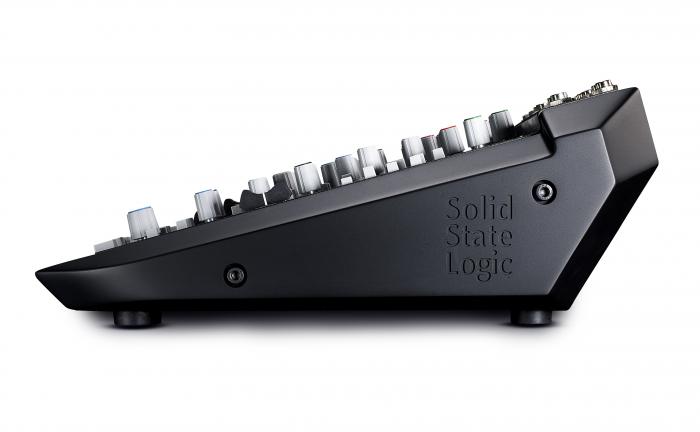

 VIEW MEDIA
VIEW MEDIA